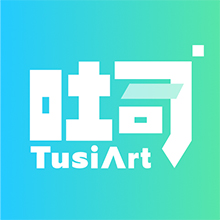Title: The Impact of Artificial Intelligence on Thesis Writing and the Importance of Avoiding Plagiarism
Introduction:
As an assistant in thesis writing, I am well aware of the importance of presenting a well-crafted and original research document. In the era of artificial intelligence (AI), students can utilize various tools and techniques to enhance their writing process. However, it is equally important to be aware of the potential pitfalls in order to avoid any issues related to plagiarism. In this article, we will explore how AI can assist in thesis writing and emphasize the significance of maintaining academic integrity.
The Influence of Artificial Intelligence on Thesis Writing:
Artificial intelligence has revolutionized various aspects of our lives, and academic writing is no exception. AI tools and software can immensely benefit students during the thesis writing process. Here are a few ways AI can assist:
1. Research Assistance:
AI-powered search engines can help students find relevant academic sources quickly and efficiently. By utilizing machine learning algorithms, these tools can deliver accurate and targeted search results, saving valuable time.

2. Grammar and Language Enhancement:
Automated proofreading and grammar checking tools assist in improving the language and grammar of a thesis. These tools can provide suggestions and corrections, ensuring that the document is free from grammatical errors, enhancing its readability.
3. Style and Formatting Guidance:
AI tools can analyze academic journals and recommend suitable citation styles and formatting guidelines. This feature helps students adhere to the specific requirements of their respective disciplines and institutions.
The Importance of Avoiding Plagiarism:
While AI offers tremendous aid in thesis writing, it is crucial to acknowledge the significance of academic integrity. Plagiarism, whether intentional or unintentional, can have severe consequences. Here are a few reasons why avoiding plagiarism is of utmost importance:
1. Ethical Responsibility:
Plagiarism undermines the trust and integrity of the academic community. It is essential for students to uphold ethical standards by acknowledging the work of others and presenting their own unique ideas and insights.
2. Academic Standing:
Plagiarism can lead to severe consequences, including academic penalties and a damaged reputation. It jeopardizes one’s academic standing and future opportunities for scholarships, grants, and career prospects.
3. Intellectual Growth:
By avoiding plagiarism, students can develop their critical thinking and research skills. It encourages creativity and fosters a deeper understanding of the subject matter, ultimately contributing to personal growth and development.
Conclusion:
In the age of AI, students have access to a plethora of tools to enhance their thesis writing process. However, it is crucial to utilize these tools ethically and responsibly. Avoiding plagiarism ensures the preservation of academic integrity and allows students to grow intellectually. By utilizing AI tools for research assistance, grammar and language enhancement, and formatting guidance, while consciously avoiding plagiarism, students can present their research with confidence and contribute to the academic community.
















 津公网安备12011002023007号
津公网安备12011002023007号